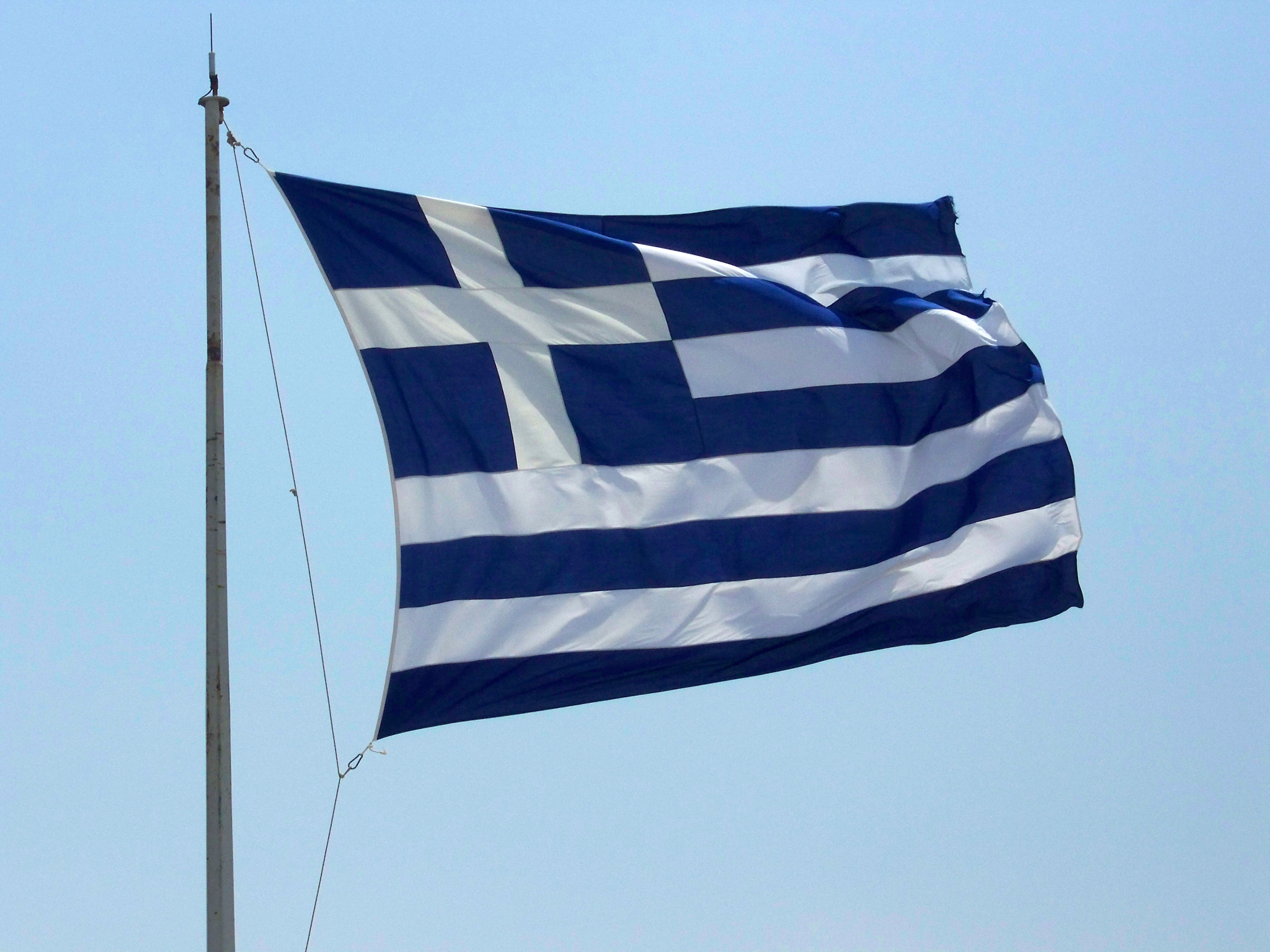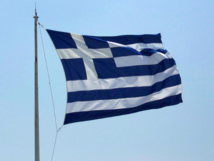- This is not a joke. Crowdfunding can really help. You just need to get together and do it. I'm tired of looking like the Greek crisis is repeated from cycle to cycle, while politicians have been slow and swing. It affects the lives of real people - 29 y.o. Briton comments its initiative.
The campaign was announced on Sunday. The stated goal of the campaign - to collect 1.6 billion euro by 7 July. Feeney promises a reward in the form of postcards signed by the prime minister of Greece Alexis Tsipras for a minimum donation of three euros, for a donation of 6 euros - Greek salad for home delivery, and for 25 euros - a bottle of Greek wine. It is not specified whether the initiative is approved by Tsipras.
The referendum, in which the Greeks have to decide whether to accept the conditions that Greece's international offered for further loans, is appointed on July 5.
The Prime Minister Alexis Tsipras himself persuades citizens to renounce conditions mean further belt-tightening and European leaders indicate that the Greeks, in fact, are asked to choose - to remain in the euro zone or get out of it.
Also Tuesday, it was confirmed that Greece is not going to pay 1,54 billion euro to International Monetary Fund - Finance Minister Janis Varufakis.
When asked by Channel 4 News, whether Greece will pay this amount, the minister said "no."
Before, The Wall Street Journal reported this, citing an unnamed representative of the Government.
The deadline for payment of the IMF in amount of 1.538.56 thousand euro expires on 30 June at 18:00 by Washington. The IMF earlier made it clear that the default on the debt will be considered on Tuesday as the default fund. The ECB has not yet revealed its position on this issue.
International rating agencies have previously stated that they would not consider a non-payment on Greece's commitments to the IMF as the default, as they are primarily monitor repayment of debt issuers to private creditors.
As newspaper Financial Times writes, compliance with an obligation to the fund will not lead to immediate negative consequences. The bilateral credit agreements with the countries of Greece, the euro zone contain clauses about the possibility of early withdrawal of funds under cross-default mechanism. However, the British newspaper, it is unlikely that national governments will want to take advantage of these provisions of the treaties.
The ECB's decision to maintain the level of funding of Greek banks at around 89 billion euros, taken on Sunday, also suggests that the failure to pay to IMF can go unnoticed.
Thus, Greece may come to the referendum on July 5 with closed banks, but without urgent need to start producing their own money.
The next big payment on the debt of Greece has to be July 10, it must pay € 2 billion to bondholders.
July 20, Greece will have to pay 3.5 billion euros to the European Central Bank. If the Athens defaults in this case, it would almost certainly lead to the cessation of support for Greek banks, the collapse of the financial system and could force the government to start printing its own money.
The campaign was announced on Sunday. The stated goal of the campaign - to collect 1.6 billion euro by 7 July. Feeney promises a reward in the form of postcards signed by the prime minister of Greece Alexis Tsipras for a minimum donation of three euros, for a donation of 6 euros - Greek salad for home delivery, and for 25 euros - a bottle of Greek wine. It is not specified whether the initiative is approved by Tsipras.
The referendum, in which the Greeks have to decide whether to accept the conditions that Greece's international offered for further loans, is appointed on July 5.
The Prime Minister Alexis Tsipras himself persuades citizens to renounce conditions mean further belt-tightening and European leaders indicate that the Greeks, in fact, are asked to choose - to remain in the euro zone or get out of it.
Also Tuesday, it was confirmed that Greece is not going to pay 1,54 billion euro to International Monetary Fund - Finance Minister Janis Varufakis.
When asked by Channel 4 News, whether Greece will pay this amount, the minister said "no."
Before, The Wall Street Journal reported this, citing an unnamed representative of the Government.
The deadline for payment of the IMF in amount of 1.538.56 thousand euro expires on 30 June at 18:00 by Washington. The IMF earlier made it clear that the default on the debt will be considered on Tuesday as the default fund. The ECB has not yet revealed its position on this issue.
International rating agencies have previously stated that they would not consider a non-payment on Greece's commitments to the IMF as the default, as they are primarily monitor repayment of debt issuers to private creditors.
As newspaper Financial Times writes, compliance with an obligation to the fund will not lead to immediate negative consequences. The bilateral credit agreements with the countries of Greece, the euro zone contain clauses about the possibility of early withdrawal of funds under cross-default mechanism. However, the British newspaper, it is unlikely that national governments will want to take advantage of these provisions of the treaties.
The ECB's decision to maintain the level of funding of Greek banks at around 89 billion euros, taken on Sunday, also suggests that the failure to pay to IMF can go unnoticed.
Thus, Greece may come to the referendum on July 5 with closed banks, but without urgent need to start producing their own money.
The next big payment on the debt of Greece has to be July 10, it must pay € 2 billion to bondholders.
July 20, Greece will have to pay 3.5 billion euros to the European Central Bank. If the Athens defaults in this case, it would almost certainly lead to the cessation of support for Greek banks, the collapse of the financial system and could force the government to start printing its own money.



















